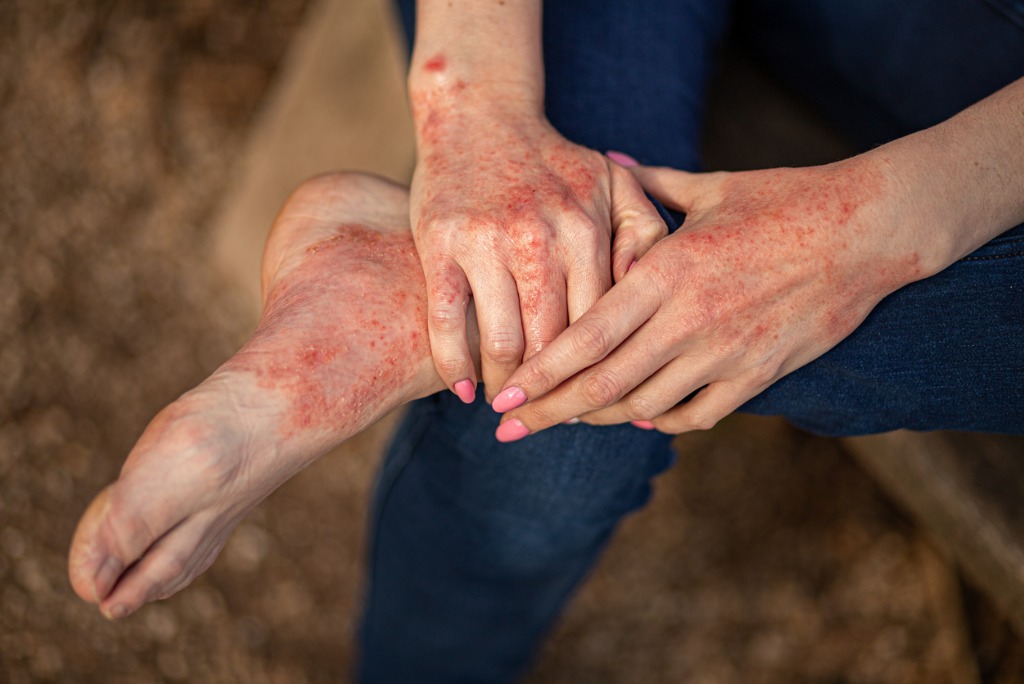Psoriasis is an autoimmune skin condition that affects roughly 7.5 million people in the US. Characterized by red, flaky patches on the skin, this condition has been studied extensively to uncover its triggers and best management approaches. An aspect of psoriasis care that has gained attention over the years is the role of nutrition. The psoriasis diet is not a strict regimen but rather an exploration of how certain foods and nutrients might influence the severity and frequency of flare-ups. If you’re looking to get a better handle on your psoriasis symptoms, here is what you need to know about the psoriasis diet connection.
Dietary Insights: How Food Choices Impact Psoriasis
Inflammation plays a central role in psoriasis, with the immune system mistakenly attacking healthy skin cells, leading to the rapid turnover and buildup that results in skin plaques. Diet, as a modifiable environmental factor, profoundly affects inflammation within the body. Certain foods may fuel inflammation, while others may help to reduce it. Therefore, understanding and implementing dietary changes can be a potent tool in managing psoriasis symptoms.
Foods That May Trigger Flare-Ups
While everyone’s body responds differently to individual food items, a few common culprits seem to intensify psoriasis symptoms in many patients. These foods may aggravate inflammation, increasing redness, itching, and flare-ups. It’s important to be mindful of these potential triggers in your diet and to consider discussing any changes in nutrition with your healthcare provider. Here’s a look at some of the foods to avoid when incorporating a psoriasis diet.
- Red meats
- Dairy products
- Alcohol
- Fried foods
- Citrus fruits
- Nightshade vegetables
- Spicy foods
Foods To Incorporate in the Psoriasis Diet
Just as some foods can trigger inflammation and exacerbate psoriasis symptoms, others might help to calm the immune system and reduce inflammation. Incorporating these anti-inflammatory foods into your diet could potentially help manage psoriasis symptoms and enhance your overall health. However, it’s essential to remember that while a psoriasis diet can support overall well-being, it is not a cure for psoriasis. Here are some foods to consider incorporating into your psoriasis diet:
- Fatty fish like salmon, mackerel, and sardines
- Olive oil
- Green leafy vegetables like kale and spinach
- Berries
- Dark chocolate
- Nuts, particularly walnuts, and almonds
- Whole grains
- Tumeric and ginger
- Lean proteins like chicken and turkey
Making Dietary Adjustments: A Personal Journey
The journey to better psoriasis management through nutrition is a personal one, and it’s crucial to consider your body’s individual needs. The following are a few tips to keep in mind as you explore the psoriasis diet connection. If you encounter any negative effects when making dietary changes contact your healthcare provider right away.
Keeping a Food Diary
Tracking your meals and any corresponding symptoms can be a powerful tool in understanding how specific foods may impact psoriasis. Keeping an ongoing record of what you eat, when you eat it, and whether or not you experience flare-ups after consuming certain items can help you identify potential triggers for yourself. If you notice a pattern between certain foods and increased psoriasis symptoms, try removing them from your diet to see if your psoriasis symptoms subside. This is known as an elimination diet and is a great way to start exploring the potential impact of food on psoriasis symptoms.
Consulting With Nutritionists
A nutritionist can be a valuable asset in your psoriasis management plan. While general dietary guidelines for managing psoriasis exist, it’s vital to have an individualized approach that considers your unique body and lifestyle circumstances. With guidance from a professional in the field of nutrition, you can create personalized meal plans and learn more about how certain foods might impact your psoriasis.
The Importance of Hydration
Staying hydrated is essential for overall health and psoriasis management. Water helps to flush out toxins, keeps skin cells nourished and lubricated, and can help reduce inflammation in the body. In addition to plain water, consider adding hydrating fruits and vegetables like cucumbers, celery, cantaloupe, pineapple, grapefruit, and watermelon into your diet. Those with a particularly rigorous exercise regimen should also take into account fluid losses during physical activity and ensure they are consuming enough liquids.
Unveil the Future of Psoriasis Care With OCR
Living with psoriasis can be a daily challenge. Fortunately, there’s hope on the horizon. By joining a clinical trial with Olympian Clinical Research (OCR), you’re not only accessing cutting-edge treatments but also contributing to the advancement of psoriasis care for others. Let’s shape the future of psoriasis treatment together. If you’re curious, ready for change, or want to learn more, contact OCR today and take the next step toward optimal psoriasis management.

Recent Comments